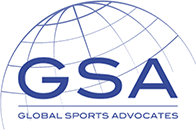
As a college athlete, you have more opportunities to monetize your personal brand than ever before. You might sign autographs for fans at a local sports shop, partner with brands to showcase their athletic gear on your social media, or make paid appearances at community events. However, it's crucial to understand where your individual rights end and the rights of others begin. At Global Sports Advocates, our experienced sports law attorneys can help you navigate contract negotiations, protect your interests, and ensure compliance with state laws, your university’s rules, and NCAA regulations.
NIL Rights for College Athletes
The right of publicity refers to a person’s right to profit from their name, image, and likeness (NIL). For a student-athlete, NIL may include things such as:
- Autographs
- Wearing athletic or non-athletic branded clothing or accessories
- Personal appearances
- Promoting a product or service
- Providing lessons, camps, or clinics
- Fundraising
NIL applies to individual athletes only. Therefore, college athletes must be careful not to use their schools’ trademarked logos or names without permission.
Key Provisions in State NIL Laws
State laws vary, but there are several common themes that have emerged.
Disclosure Requirements
Many states require student-athletes to report NIL agreements to their schools. This ensures transparency and helps institutions monitor potential conflicts with existing sponsorships. For example, if a university has an exclusive apparel deal with one brand, an athlete may not be able to sign a competing endorsement.
Prohibited Activities
State laws often specify types of NIL activities that are off-limits. Common restrictions include:
- Promoting alcohol, tobacco, or gambling products
- Associating with companies that conflict with school values
- Using institutional trademarks or logos without permission
These limitations are intended to balance athlete independence with the interests of schools and sponsors.
School Involvement
The degree to which schools can assist student-athletes with NIL opportunities varies from state to state. Some states prohibit schools from directly facilitating deals to prevent unfair advantages in recruitment, while others allow institutions to provide:
- Legal and contract review services
- Brand development guidance
- Financial advisory services
- Marketing and social media training
- Professional networking opportunities
- NIL education programs
Some states also require schools to designate specific staff members or offices to handle NIL-related matters.
Financial Education
Some states require schools to offer financial literacy programs to athletes. These educational requirements typically include:
- Tax obligations and reporting requirements
- Budgeting and financial planning
- Contract negotiation and evaluation
- Understanding market value and fair compensation
- Insurance considerations
- Professional service provider selection (agents, attorneys, advisors)
Agent and Representation Rules
Most states require agents to be registered with the state or certified by professional organizations to represent athletes in NIL deals. The regulations typically address when and how athletes can engage with agents, including specific rules about fee structures and contract terms. Many states also require athletes to disclose their agent relationships to their schools.
Timing and Eligibility Considerations
State laws may specify when athletes can begin engaging in NIL activities, how international student-athletes are affected, and what impact NIL activities may have on athletic eligibility. States also commonly address the permissibility of multi-year deals that extend beyond an athlete's college career.
Reporting and Compliance
Reporting and compliance requirements ensure transparency and accountability in NIL activities. These provisions may include:
- Regular reporting of NIL activities to institutions
- Maintenance of accurate records
- Compliance with federal and state tax laws
- Adherence to NCAA and conference rules
- Regular audits or reviews of NIL activities
- Documentation of fair market value for compensation
Where States Stand on NIL Agreements
As of January 2025, 32 states have NIL laws affecting student-athletes.
- Arizona
- Arkansas
- California
- Colorado
- Connecticut
- Delaware
- Florida
- Georgia
- Illinois
- Kentucky
- Louisiana
- Maine
- Maryland
- Michigan
- Mississippi
- Missouri
- Montana
- Nebraska
- Nevada
- New Jersey
- New Mexico
- New York
- North Carolina
- Ohio
- Oklahoma
- Oregon
- Pennsylvania
- South Carolina (currently suspended)
- Tennessee
- Texas
- Virginia
Not all states have enacted NIL-specific legislation. In states where no such laws exist, athletes must adhere to the NCAA’s general guidelines and any policies set by their schools or conferences. The NCAA offers NCAA NIL Assist, a NIL platform in collaboration with Teamworks, to help student-athletes understand and make informed decisions about NIL opportunities. NIL Assist provides educational resources, a directory of providers interested in working with student-athletes, and a database of NIL information reported by Division I programs.

